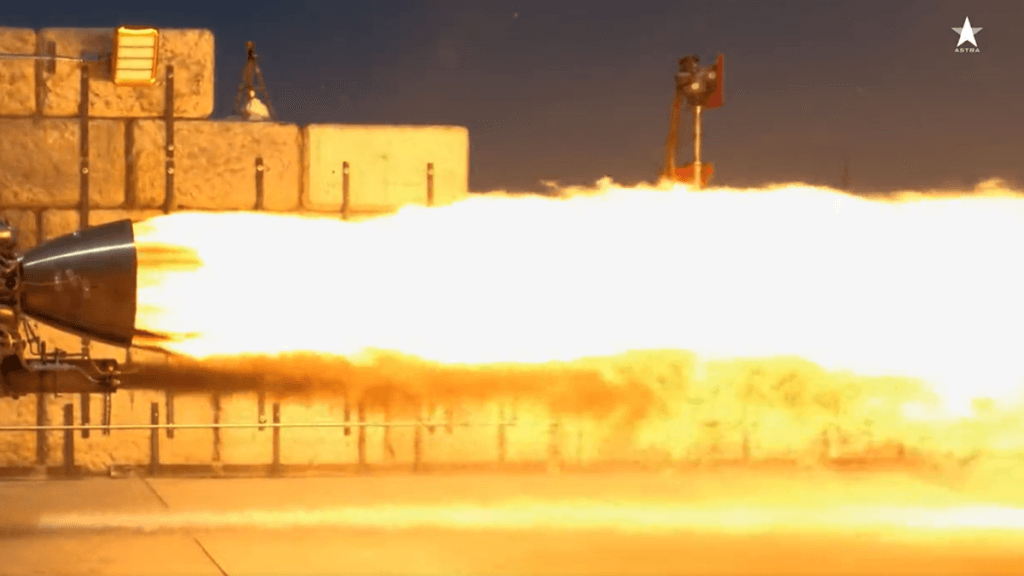Astra is starting its engines on a new rocket line.
The California-based Astra released footage Thursday (Sept. 1) showing one of its engines doing a “hot fire” as the company continues development Rocket 4, which may start test flights in 2023.
“Testing engines for our new launch system. #AdAstra,” the company wrote on Twitter (opens in new tab). No details about the length of the fire or other testing metrics was immediately available.
The company announced last month it would stop production of its Rocket 3 booster line following numerous failures, to focus on “the next version of its launch system.” Astra’s goal is to create a more powerful vehicle with better reliability and capacity and to produce the rockets more quickly.
Video: Watch Astra’s LV0010 rocket launch failure with NASA satellites
The most recent loss occurred on June 12 when Astra’s Launch Vehicle 0010 (LV0010) had a second-stage failure minutes after leaving Earth from Cape Canaveral Space Force Station in Florida.
Two NASA cubesats, meant to be the first of a six-satellite fleet designed to track hurricanes, were lost. The agency is considering its options to loft the fleet, which is called the Time-Resolved Observations of Precipitation structure and storm Intensity with a Constellation of Smallsats (TROPICS) mission.
In the meantime, Astra’s Rocket 4 is expected to perform test launches in 2023 at the earliest. It will exceed Rocket 3’s lifting mass tenfold, with a payload capacity of 1,320 pounds (600 kg) to send larger constellation fleets into orbit, Astra officials have said. An upgraded upper-stage engine will support that effort.
Business deals are ongoing despite the lull in launches; Airbus OneWeb Satellites signed a deal announced (opens in new tab) Monday (Aug. 29) to receive Astra spacecraft engines for integration into Arrow commercial small satellites. (Small satellite manufacturer OneWeb, and aerospace giant Airbus, are participating in this deal through a joint venture.)
“We want to do several test flights, we want to test every component of the system, we want to test the engines, we want to test the stages, we want to test the software, we want to test the electronics,” CEO Chris Kemp told investors of Rocket 4 during a quarterly results phone call last month.
The timeline for Rocket 4, he added, will have “a lot of uncertainty, because we want to give the time to the team to do all that testing before we do another commercial launch.”
Including test flights and earlier versions of the Rocket 3 line, the now-discontinued rocket group failed five times in seven launches, according to SpaceNews (opens in new tab).
Follow Elizabeth Howell on Twitter @howellspace (opens in new tab). Follow us on Twitter @Spacedotcom (opens in new tab) and on Facebook (opens in new tab).

